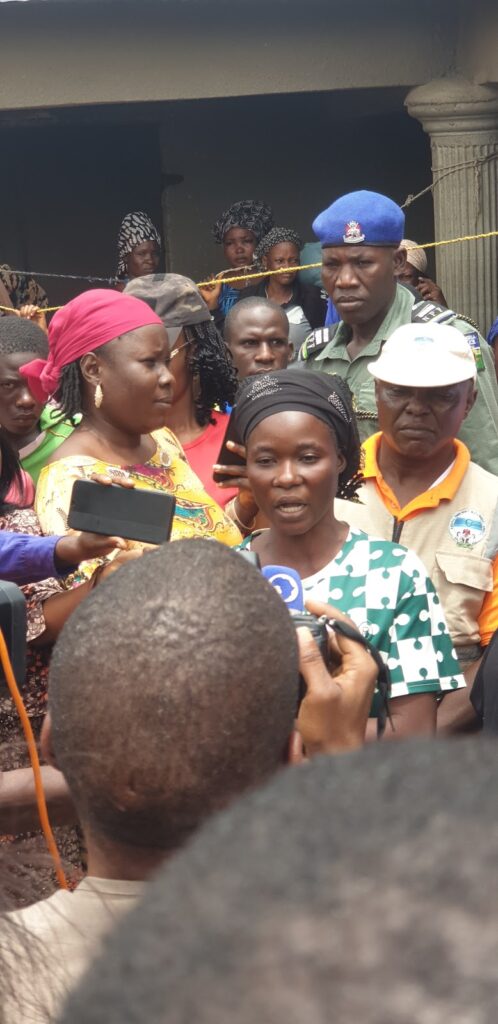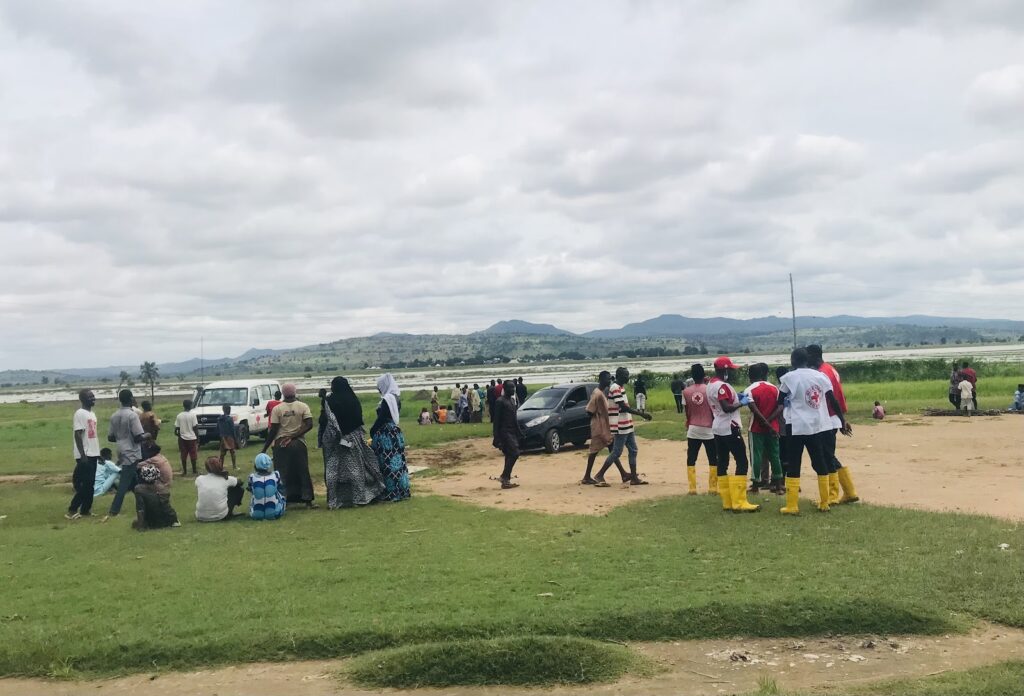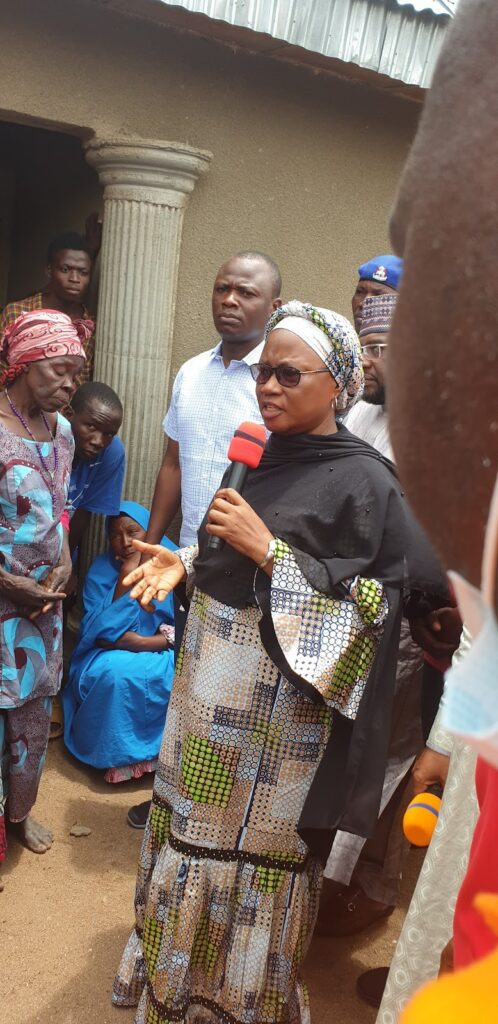Joy Ibrahim, a 29-year-old survivor, recounted the terrifying moment when a boat capsized in the river between Dandu and Rugange Community, Adamawa State, on Sept. 8. The tragedy had claimed 13 lives, leaving the community in shock and mourning.
“We went to Rugange to buy maize, but we didn’t find what we needed,” Ibrahim said.
“On our return, a severe storm hit us. The driver told us to disembark as the canoe was about to sink, but we were in the middle of the river. The canoe capsized, and I began to drown. I was unconscious when rescued and woke up in an unfamiliar house.”

The boat was carrying around 20 people when it capsized due to heavy rain and strong winds. Only the boat drivers managed to swim to safety. The community was alerted, and a search operation was launched. Six bodies were recovered on the day of the incident, and seven more were found the following day.
William, a security personnel in Dandu, who preferred to go by his first name only, said that this was not the first time such a tragedy had occurred.
“This is a recurring tragedy. Last year’s incident resulted in five deaths, but this year’s toll is even worse,” he said. He added that the community often relies on itself for support during these times, as there are no government regulations or coast guards to assist in such situations.

The State Emergency Management Agency (SEMA) reported nine casualties, including two men and seven women. The police, NEMA, and Red Cross responded to the scene and ensured each family claimed their deceased loved ones.
Adamawa State is prone to flooding, with an estimated 260,000 people potentially exposed to floods and about 1,000 km2 of land submerged, according to a 2022 satellite analysis by the United Nations Satellite Centre (UNOSAT).
The flooding is mainly due to heavy rainfall, which begins in July and continues into late October. The overflow of the Benue River is caused by increased water flows from river sources in the Cameroonian highlands.
Recurrence
According to satellite analysis conducted by the United Nations Satellite Centre (UNOSAT) between October 13th and 17th, 2022, approximately 6,600,000 people were potentially exposed to flooding, and over 30,000 km2 of land across the country was flooded. Among the most affected states is Adamawa State, where an estimated 260,000 people are at risk of floods, and around 1,000 km2 of land in the state has been submerged.
The State Emergency Management Agency (SEMA) attributes the flooding in Adamawa State to heavy rains that began on July 11th, 2022 and are still ongoing as of Oct. 24th, 2022. Additionally, increased water flows from river sources in the Cameroonian highlands have caused the Benue River to overflow, flooding several communities in Adamawa State.
The situation was further exacerbated by the release of water from the Lagdo dam in Cameroon, which led to the additional displacement of people and the destruction of farmlands, barns, and other property.
According to SEMA, as of Sept. 1, 2022, 25 people were reported dead, 58 were critically injured, 131,638 individuals were displaced, and 153 communities in 18 Local Government Areas (LGAs) were submerged.
Despite the horrifying data on casualties recorded from boat mishaps, the state government, like many other states, has no established bodies or laws regulating marine transportation in the northern states. There are no established coast guards or rescue teams, even along the banks of rivers known for such high traffic during the rainy season.
Government response
The deputy governor of Adamawa state, Professor Keletapwa Farauta, visited the bereaved families to express her condolences.
“This loss affected the entire state. The governor himself would have come but had urgent travel plans for an engagement,” said the deputy governor, who offered words of comfort, stressing that “only God can provide solace.”

The U.S. Agency for International Development (USAID) recently provided $9 million in humanitarian assistance to bolster disaster response efforts in Northeast Nigeria. The funds will provide emergency shelter, water and sanitation, psychosocial support services, and cash to populations affected by floods from the ongoing rainy season across Borno, Adamawa, and Yobe States.
Support Our Journalism
There are millions of ordinary people affected by conflict in Africa whose stories are missing in the mainstream media. HumAngle is determined to tell those challenging and under-reported stories, hoping that the people impacted by these conflicts will find the safety and security they deserve.
To ensure that we continue to provide public service coverage, we have a small favour to ask you. We want you to be part of our journalistic endeavour by contributing a token to us.
Your donation will further promote a robust, free, and independent media.


